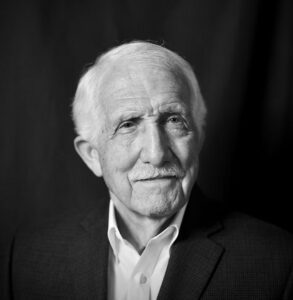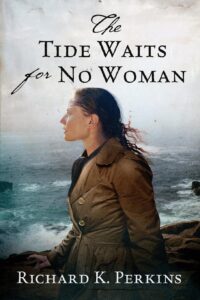 Richard K. Perkins was born in Salem, Massachusetts, and grew up in two New England villages. He is a US Naval Academy graduate, a career naval officer, and a systems engineer in the aerospace sector. He earned graduate degrees from the National Intelligence University, the Industrial College of the Armed Forces, and the Johns Hopkins University School of Advanced International Studies. He has contributed nonfiction columns for The Doctor T. J. Eckleburg Review and published short fiction in Penn Union. He lives with his wife in Southeastern Virginia, where he spends his time penning historical fiction.
Richard K. Perkins was born in Salem, Massachusetts, and grew up in two New England villages. He is a US Naval Academy graduate, a career naval officer, and a systems engineer in the aerospace sector. He earned graduate degrees from the National Intelligence University, the Industrial College of the Armed Forces, and the Johns Hopkins University School of Advanced International Studies. He has contributed nonfiction columns for The Doctor T. J. Eckleburg Review and published short fiction in Penn Union. He lives with his wife in Southeastern Virginia, where he spends his time penning historical fiction.
How much of the book is realistic or inspired by true facts?
A great deal of it is a slight fictionalizing of real events in Maine’s, North Carolina, and the Tidewater’s histories with imagined human feelings, discussions, and but many real-world consequences. For instance, the story of the Black family comes from a contemporary first-person account of a family fleeing out of South Carolina as free blacks and one fugitive who had been trained as a cooper. Their master was one of 6000 Black slave owners in the census of 1840, after which point the race of the slave owners ceased to be clearly recorded.
In another instance, David Campbell was a merchant captain of a coastal schooner from Maine, who was shipwrecked in a storm off Ocracoke Island in the same season as the fictional character, Captain Clifford Anderson. My contemplating what was going on inside the wife he left in Maine is what inspired me to write a story about Abby. As a former naval officer, I could easily relate to having left a wife back home and wondering about what she was doing and thinking.
Did you have to travel much concerning your book?
Yes, my wife, Mimi, and I traveled to get the feel of these places and meet some locals and ask them about their local histories. Seemed like a good way to start. There were dialects to experience, glints in the eyes to notice, and senses of humor to sample.
We traveled to all the places in the The Tide Waits for No Woman (except Matinicus Rock Light), including the rural Maine towns and villages, the Tidewater Area, Ocracoke Island, NC and New Bern, NC. That included driving up River Road to north of Bingham, Maine – which we learned would be about the distance of a four-hour drive in a horse-drawn wagon at three miles per hour.
What was the hardest part of writing your book?
Discovering (with lots of help) that I had gotten caught up with my work and had twice the page count expected for a debut novel. After a couple of feasibility studies, I decided I should divide my lengthy book in two separate novels. This major surgery on my first serious novel was the most difficult part of the writing. And, yes, there is a sequel coming out of that other half. It will be called The Running Fix.
What books are you reading at present?
Benjamin Franklin Butler: A Noisy, Fearless Life, a recent biography of the Commander of Fortress Monroe, Virginia, the man who coined the phrase “contraband of war” to describe the three Black fugitives who showed up to the sentries at the fort the day after Virginia decided by plebiscite they would join the Secession.
The League of Wives, an accounting of the wives of POW/MIA warriors held by the North Vietnamese during that war. Most of them in the Sixties and Seventies did not know if they were widows or not. Communications with the North Vietnamese about prisoners and missing-in-action people were terrible, which forced them to engage with the anti-war protestors who were traveling to Hanoi.
Do you recall how your interest in writing originated?
My parents were both readers, and in grade school, I had a notion that I could write a story, too, some day. My mother encouraged me every time she had a chance. Her plan for me was to become first, a journalist, then a teacher, and all along that way, a writer. Dad commuted to Boston by train, and he read mostly non-fiction, forwarding his knowledge of mechanical engineering. He always said to work hard to keep up with your professional field, whatever else you do.
I followed both examples and learned from the second grade on that there was no reason to pass up a library on your way home. So, I didn’t pass it up, and I learned to love Hemingway, Joyce, Fitzgerald, Greene, Lewis, Chekov, Tolstoy, Follet, and many others. It built a keen curiosity in me about whether I could write, and would anyone care if I did?
Who is the most supportive person in your life when it comes to your writing?
My wife, Mimi, is my first reader and my last reader. She is my research assistant, the mother of our three boys (now men with their own families), and the love of my life for fifty-five years.
Are there any new authors that have grasped your interest?
Leslie K Simmons Red Clay, Running Water
M. Brown The Last Laird of Sapelo
Shirley Nesbit Seller Just Across the Sound
Josie Olsvig Freedom’s Tears
John Hinman Strong Vincent
Shirley Fraser Mickle The Occupation of Eliza
Michael Helms Of Blood Brothers
Rebecca Dwight Bruff Trouble the Water
Deborah Hufford Blood to Rubies
Are experiences based on someone you know, or events in your own life?
Not directly – but there was plenty of inspiration from my family history.
The young Quaker, who went on horseback searching for Abby and her wagon, decided he was more abolitionist than conscientious objector. He was one of my relatives who lived in Salem, Massachusetts instead of Augusta, Maine. He enlisted early when President Lincoln was just calling for militia volunteers, and he fought in many battles before he died at Fredericksburg, where he now lies in a mass grave.
The loss of the merchant captain and his crew off Ocracoke Island in July of 1860 reflects the actual loss of a coastal schooner mastered by David Campbell of Maine. My reflection of what happened to his “widow” was part of the inspiration to write about Abby. I was looking through the lens provided by my mother in her seven-chapter start on a book that was based on her personal experience in rural Maine as a child following her father to his job sites around Maine. She knew at a practical level at eight years old there were all kinds of interracial and cross-ethnic happenings in rural Maine—even though neither she nor I, ever heard about it or read about it in her classroom, my classroom, my children’s classrooms, or their children’s classrooms.
After the British burned the port of Portland in the War of 1812, a rural spot in northwest Maine was named New Portland and opened to development where land was free for the asking. There is a story about a John Butts walking from the coast of Massachusetts to that recently available land around the village that had formed there. He hired himself out, built a cabin, and worked the plot until he could afford to buy a horse and ride back to his family in Westford. He then loaded his family into a double wagon and returned to their new homestead. That John Butts fathered nineteen children with two wives. Those offspring brought seventy-five grandchildren into being, which was one way to provide the labor force for the rural farming that needed to be done. That Butts family, led by another John Butts, and a King family brought my mother into this world in New Portland, Oxford County in 1922.
Are there messages in your novel that you want readers to grasp?
There are many nuanced currents leading up to any major or transformative conflict that often paint a slightly different picture from that which was taught in schools after the conflict. This is part of the losses in overgeneralizing the points laid out about the causes and conduct of the conflict.
- There are many contributions by common folks in a major conflict that are left out of history books and classrooms. Their accomplishments were usually attributed to the principals they served with at the time. It is part of what is lost in the “summing up.”
- The press has always been a predatory participant, looking for blood, or the smell of blood, wherever it can be found. They are good for getting a sense of the dialogue of the time, but the truth of the matter or the details of the matter are of secondary importance—if they are considered at all. The press leaves markers, but they are dangerous primary sources if not put into a complete and balanced context—not very often in their business model.
- Your life experience will likely reenforce these points. Keep asking questions!
Connect with Richard online on his website at https://www.richardkperkins.com

The Tide Waits for No Woman is available for purchase from major online retailers including:
Amazon: https://www.amazon.com/dp/B0FH34QH7R
Barnes & Noble: https://www.barnesandnoble.com/w/the-tide-waits-for-no-woman-richard-k-perkins/1147797945?ean=9798888248065
BookShop.org: https://bookshop.org/p/books/the-tide-waits-for-no-woman/090a1ef778c0db9a?ean=9798888248041
Koehler Books: https://www.koehlerbooks.com/book/the-tide-waits-for-no-woman/
Google Books: https://books.google.com/books/about/The_Tide_Waits_for_No_Woman.html
